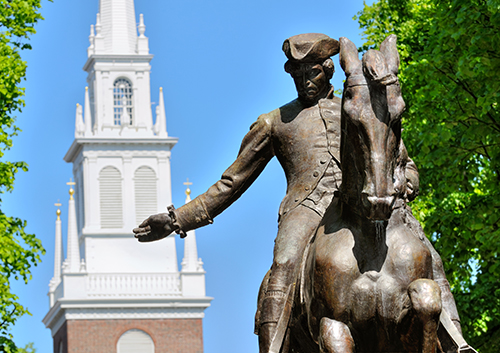June 28th, 2023

In a world where everything moves so quickly and teens and young adults find themselves pulling “all-nighters” or working long hours, energy drinks have grabbed the spotlight. You’ll have one (or three) and suddenly you have the drive you need to keep going.
The same can be said for sports drinks. It’s common for people to have one even when they’re not engaged in any strenuous physical activity, which is what they were designed for. People will drink them simply because they’ve grown to love the taste.
Although they might taste great and boost your energy, there’s a serious down side to consuming energy and sports drinks on a steady basis. Studies have shown that these drinks contain so much acid that they start to destroy your teeth after just five days of consistent use.
The acid in these drinks destroys your tooth enamel, which makes your teeth more vulnerable to bacteria. This can progress to staining, tooth decay, and hypersensitivity.
That’s why Dr. Bill Whitley and our team want to encourage you to try to limit the amount of sports and energy drinks you consume. If you do enjoy either or both of these drinks, you should make it a habit to rinse your mouth with water immediately after consumption, and brush your teeth about an hour later, after the period when acid has a softening effect on your enamel has passed.
If you feel like you’re already experiencing the side effects of heavy energy and sports drink consumption, visit our Dallas office, and our team can provide solutions for how to prevent further damage from occurring. It’s never too late to change a bad habit!
June 22nd, 2023

Every six months or so you head down to your local dentist for a teeth cleaning, but have you ever thought that your dentist could one day be famous? Well, the chances are unlikely, however, there have been a number of dentists throughout history that have achieved acclaim and celebrity coming from a profession that is not typically associated with such regard. Here are a few examples:
Doc Holliday
Perhaps most famous for his gun fight at the O.K Corral alongside his buddy, Wyatt Earp, but "Doc" also had a day job as a dentist. He was trained in Pennsylvania and later opened a thriving practice near Atlanta. Sadly, Holliday came down with a case of tuberculosis and had to close his practice. He then packed his stuff and moved west, and we all know how the rest of the story goes.
Mark Spitz
Known around the world as a champion swimmer, Spitz was actually accepted into dentistry school before he became an Olympic gold medalist. While he ultimately decided not to attend school, it's safe to say he made the right choice considering he now has seven gold medals.
Paul Revere
The most famous dentist to come out of the American Revolution, Paul Revere was a man of many hats. He, of course, is known throughout history books for warning the colonies of the impending British troops on the attack, but when he wasn't involved in the fight he had a few different jobs. He was a silversmith, but also advertised his services as a dentist. More specifically, he specialized in making false teeth for people in need.
Miles Davis' Father
Miles Davis Jr. was one of the most acclaimed and influential jazz musicians of all time and his dad was a dentist. Miles Davis Sr. had a thriving dental practice and was a member of the NAACP. Dentistry was how he paid the bills and provided for Miles Jr., so in some ways it seems we all have the dental profession to thank for allowing Miles Jr. to become such a fantastic musician, and treating us to his jazz stylings.
Dr. Bill Whitley may not be famous, but you’ll still receive excellent care each and every time you visit our Dallas office.
June 22nd, 2023

The third molars have long been known as your “wisdom teeth,” because they are the last teeth to erupt from the gums – usually sometime during the late teens to early twenties. This is a time in life that many consider an “age of wisdom”; hence the term, “wisdom teeth.”
Extracting the third molars does not have any effect on your actual wisdom … and Dr. Bill Whitley and our staff are sorry to say that holding on to them can’t make you smarter, either. So if you somehow feel that you became wiser and smarter when your wisdom teeth appeared, chalk it up to age rather than teeth.
In fact, you may just be showing how smart you are by having your wisdom teeth removed. Mankind once relied on the wisdom teeth to replace teeth that were damaged or missing, thanks to a poor diet. But dietary changes and advances in modern dentistry make it possible for many people to hold on to their teeth for many decades, which eliminated the need for third molars.
For many people, wisdom teeth cause nothing but problems: becoming impacted, irritating surrounding gum tissue, or even causing other teeth to become crooked or overlap. By removing them, patients often enjoy a lower risk of decay, infection, and aesthetic complications.
So rest assured that extracting your wisdom teeth will have no effect on your immediate or long-term intelligence.
June 15th, 2023

Whether you’ve lost a tooth from decay, are preparing for dentures, or were born with a gap where a tooth should have been, you could be a candidate for dental implants.
Dental implants have changed a lot since their debut in 1965, thanks to continuing advances in design and technology. Today, you no longer have to worry about whether dental implants might have a negative aesthetic impact on your smile.
So what are dental implants? Pretty much what they sound like: An implant is a replacement tooth that substitutes for a missing natural one. It gets placed through several steps; it’s a process that can take a few months.
The initial step involves the surgical implantation of the implant root, which resembles a small screw. After that’s placed, the top is covered with gum tissue to enable it to heal faster. This is an essential phase in the process, since this portion of the implant will serve as the base of support for everything else.
In the second step, the implant gets uncovered and an implant restoration (or crown) is created and affixed to it. After that, you’ve got yourself a new tooth!
While dental implants require a little special care, it’s all easily manageable. All you have to do at home is make sure you brush and floss your implant daily, the same as you would for any other tooth. Although an implant can’t develop a cavity, if something were to get stuck in it, that could lead to a gum infection.
If you have any other questions about dental implants, give our Dallas office a call!



